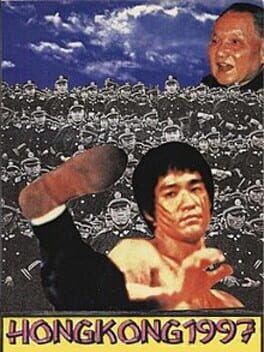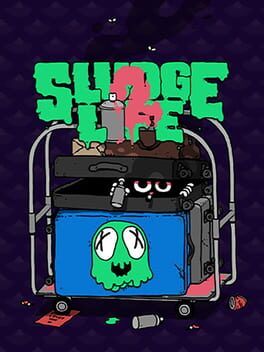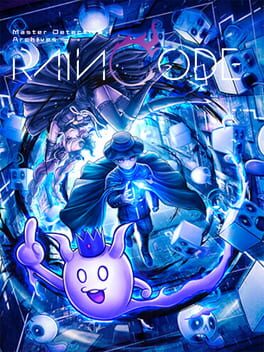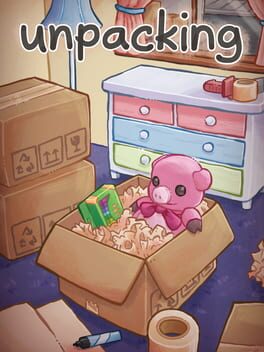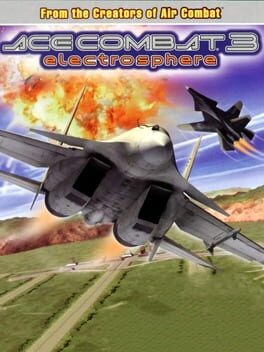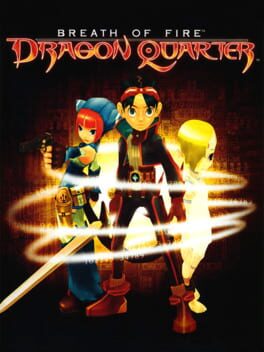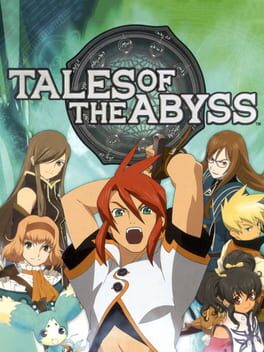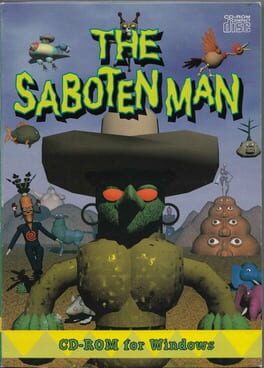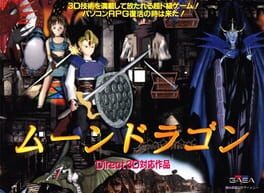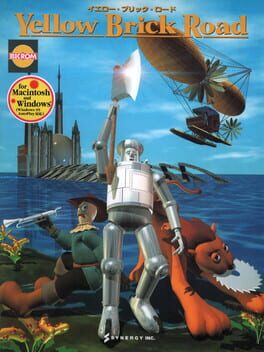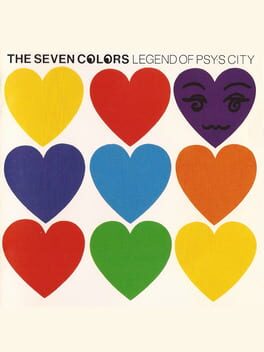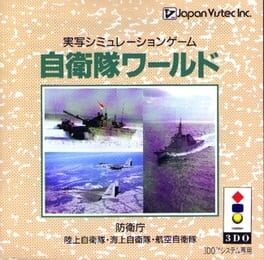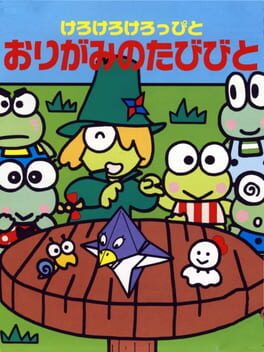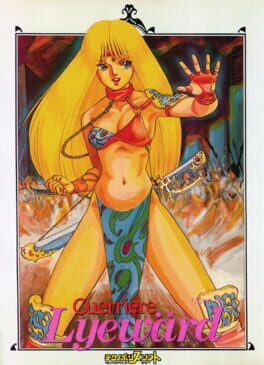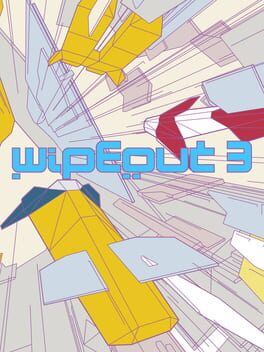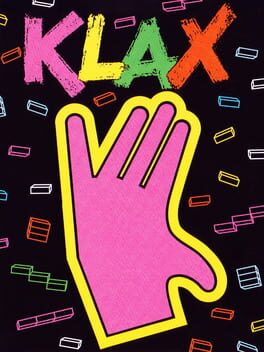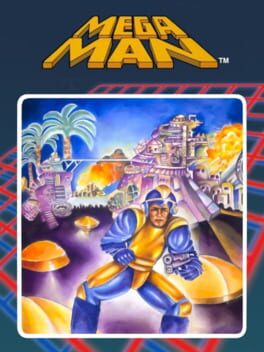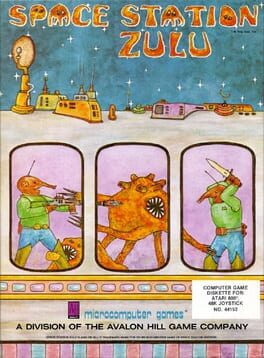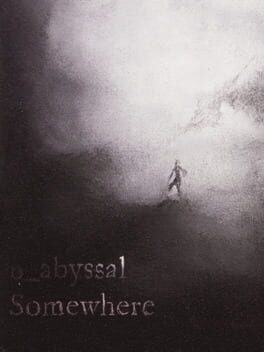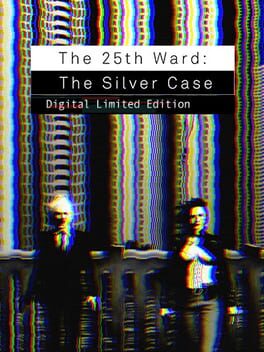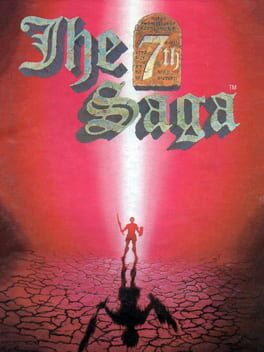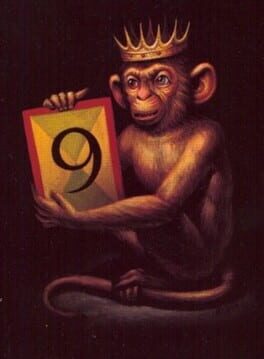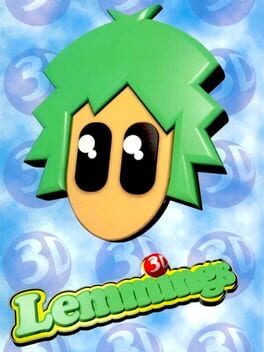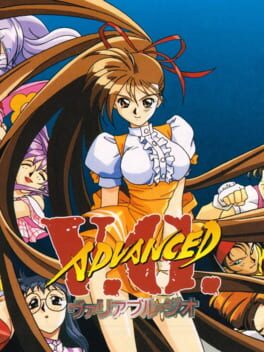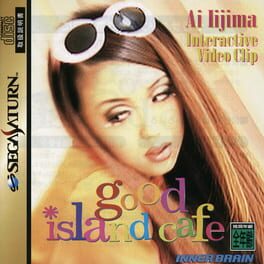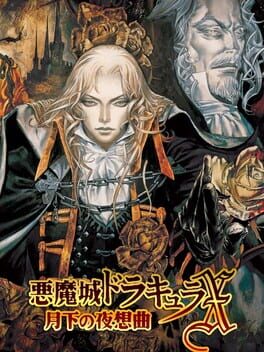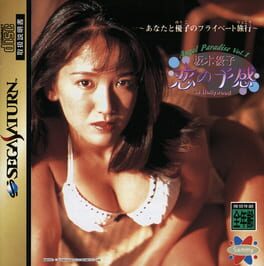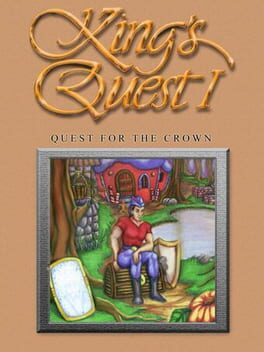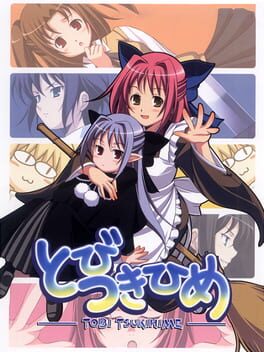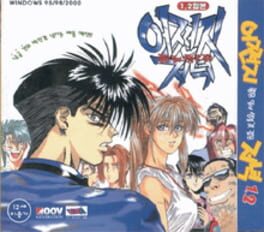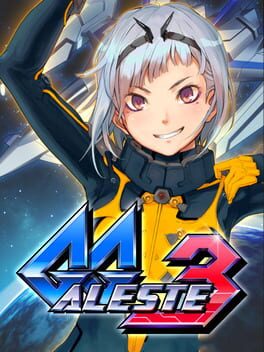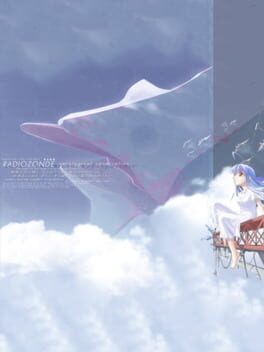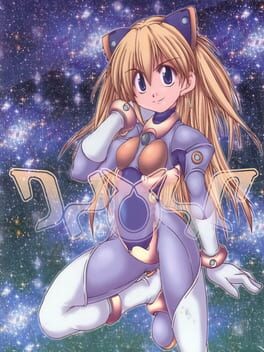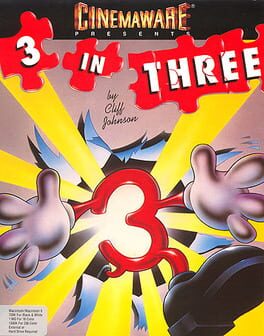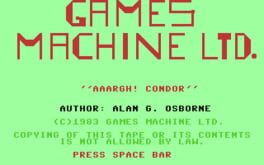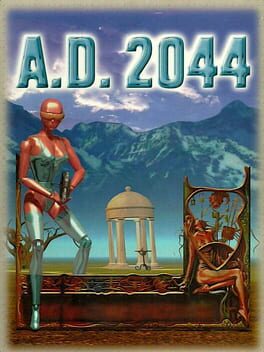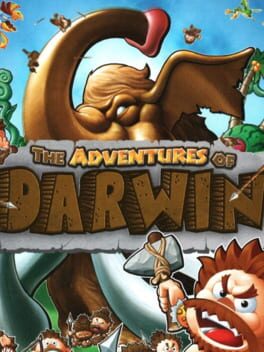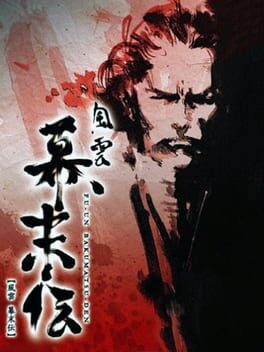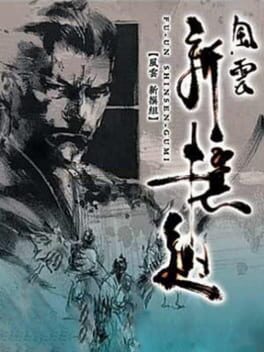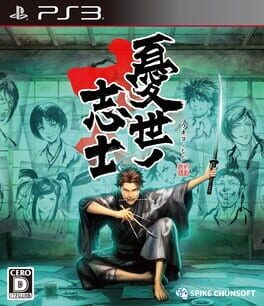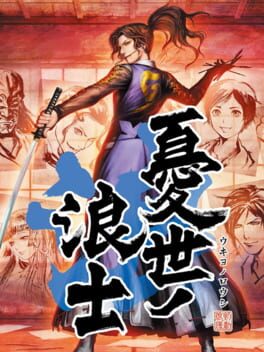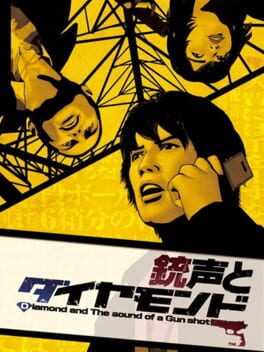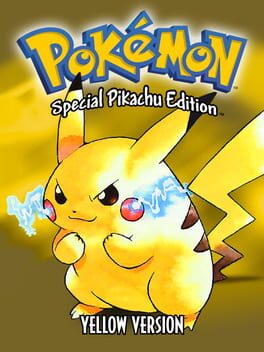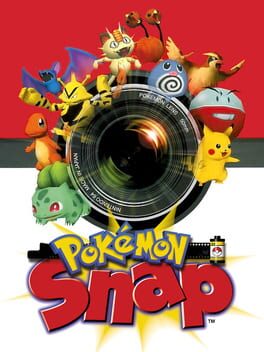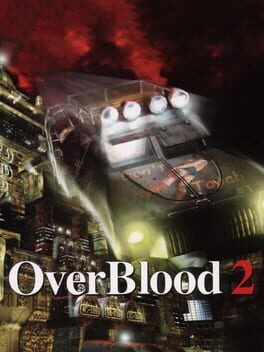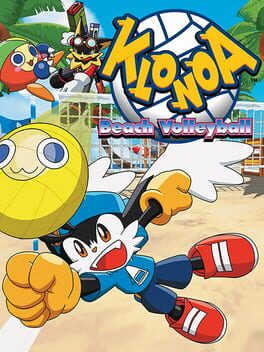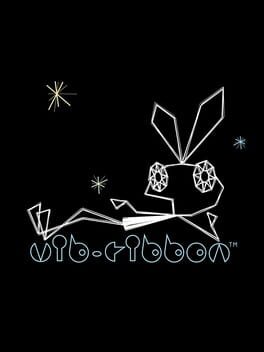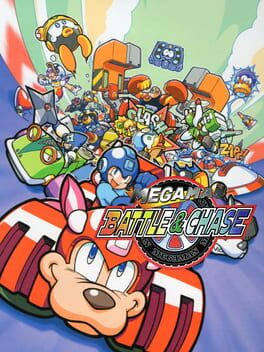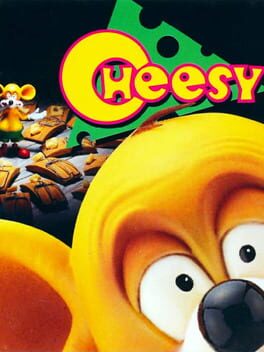Dogchester
15 reviews liked by Dogchester
Hong Kong 97
1995
The grandfather of Newgrounds political satire games.
Wonder Flower gimmicks are cute until they turn repetitious, which they do by the end of World 2. The badges largely make up for a lack of platforming aptitude which, as a seasoned gamester, means I have to play the game wrong to accommodate their use. But I'm not gonna unlearn my Mario skills so I don't remember to use them outside of when they are clearly necessary for side objectives like an over-polished immsim. You mean I should use the Dolphin badge on the levels right after I got it? Wowee Zowee!
Broadly speaking this feels like an attempt to teach the kids that grew up with the Switch what Mario is about. The hypersleek UI elements, mountains of spoken text as a replacement for other markers of design intent, the badges, the Wowee Zowee, the oodles of characters, the gacha elements of the standees, the multiple currencies (and decimalisation of Flower coins to further litter the field with shinies), the little emojis, the lack of points. These additions and subtractions are by no means bad but I won't lie, it feels a little like I'm playing a AAA game from the 2020s. Because I am. It's hard to read Wonder as a creative reinvention and reinvigoration of Mario because I know it took thousands of people to make this. That every decision was subject to board meetings and focus groups. It's the same problem as your New Super games -- the formula must be adhered to. And even if the formula changes, it's still a formula. Nothing wrong with that, but it's not what I look for at this point in my life.
I'll keep playing it, I'll probably finish it. It's like a Coca-Cola Creation, y'know? You see it on the shelf, you think 'what the hell do '+XP' or 'Starlight' taste like, the first sip is novel and enchanting, before long you're still drinking Coke. If I want true innovation, I'll reach for the local-made can of kombucha flavoured with some berry I've never heard of before. Like Haskap. Uhhh, for the purposes of this analogy I guess the random shit I pick up on Steam and itch.io are the kombucha.
And I gotta say, I'm sorry but I can't hear the Mario Gang say Wowee Zowee without having flashbacks to Game Grumps Kirby Super Star Part 2 where Jon and Arin argued for like a minute straight over whether or not Arin had said Wowee Zowee before. Back then life was so simple. I was so young. Games held so much potential. Eleven years, gone in the blink of an eye. In another life, I'm the Mario Wonder kid, growing up on a Switch. Who could have known things would turn out the way they did, that I'd be the person I am today...
Feels like a rebrand to cover up some controversial past half the time.
WOAH JUST LIKE GAME GRUMPS 😱
Broadly speaking this feels like an attempt to teach the kids that grew up with the Switch what Mario is about. The hypersleek UI elements, mountains of spoken text as a replacement for other markers of design intent, the badges, the Wowee Zowee, the oodles of characters, the gacha elements of the standees, the multiple currencies (and decimalisation of Flower coins to further litter the field with shinies), the little emojis, the lack of points. These additions and subtractions are by no means bad but I won't lie, it feels a little like I'm playing a AAA game from the 2020s. Because I am. It's hard to read Wonder as a creative reinvention and reinvigoration of Mario because I know it took thousands of people to make this. That every decision was subject to board meetings and focus groups. It's the same problem as your New Super games -- the formula must be adhered to. And even if the formula changes, it's still a formula. Nothing wrong with that, but it's not what I look for at this point in my life.
I'll keep playing it, I'll probably finish it. It's like a Coca-Cola Creation, y'know? You see it on the shelf, you think 'what the hell do '+XP' or 'Starlight' taste like, the first sip is novel and enchanting, before long you're still drinking Coke. If I want true innovation, I'll reach for the local-made can of kombucha flavoured with some berry I've never heard of before. Like Haskap. Uhhh, for the purposes of this analogy I guess the random shit I pick up on Steam and itch.io are the kombucha.
And I gotta say, I'm sorry but I can't hear the Mario Gang say Wowee Zowee without having flashbacks to Game Grumps Kirby Super Star Part 2 where Jon and Arin argued for like a minute straight over whether or not Arin had said Wowee Zowee before. Back then life was so simple. I was so young. Games held so much potential. Eleven years, gone in the blink of an eye. In another life, I'm the Mario Wonder kid, growing up on a Switch. Who could have known things would turn out the way they did, that I'd be the person I am today...
Feels like a rebrand to cover up some controversial past half the time.
WOAH JUST LIKE GAME GRUMPS 😱
Sludge Life 2
2023
my laptop is literally so dinky that I had to play this in the lowest resolution available which tbh w the wavy and v colorful graphics and vhs filter improved on the games aesthetic and overall feel. felt like how it was supposed to be played.
feel like the artist most comparable to doseone and vellman’s vibe and worldview is late career korine. like his work post spring breakers, dior commercials and all. undeniably corporate and clean while still holding on to some form of street cred/punk outlook. more or less a parodies of the modern world and all of its problems but one that treats all of its characters and their problems w love and affection, totally sincere and serious despite the playful tone. everything is so heightened, james franco playing everytime by britney on the piano while teenage girls holding guns surround him and a projectionist saying the state of cinema is a repeating violent gif of a doberman w a gun is the exact same vibe and outlook on the world. good shit, looking forward to the next doseone/vellman game and also aggro drift !!
feel like the artist most comparable to doseone and vellman’s vibe and worldview is late career korine. like his work post spring breakers, dior commercials and all. undeniably corporate and clean while still holding on to some form of street cred/punk outlook. more or less a parodies of the modern world and all of its problems but one that treats all of its characters and their problems w love and affection, totally sincere and serious despite the playful tone. everything is so heightened, james franco playing everytime by britney on the piano while teenage girls holding guns surround him and a projectionist saying the state of cinema is a repeating violent gif of a doberman w a gun is the exact same vibe and outlook on the world. good shit, looking forward to the next doseone/vellman game and also aggro drift !!
'Then he whirled around, pressing his fists to his temples, and howled — a long, roaring howl like that of a beast. A cry of confusion and desperation. A cry that tore at the hearts of all who heard it.'
– Keigo Higashino, Yōgisha X no Kenshin, 2005 (tr. Alexander O. Smith).
Played with BertKnot.
A distinctive feature of death penalty in Japan is the regularity with which it is applied, in contrast to other countries such as the United States. Even after the moratorium that followed the LDP's fall from power in 1993, there was little change in judicial practice, with no politician willing to make serious changes on the issue. In 2009, a major judicial reform was undertaken to correct the excesses of the system, notably by strengthening the rights of the defendant and limiting the value placed on confessions, which are often brutally extracted by inspectors. Some commentators have seen the introduction of jury panels as a means of opposing the death penalty, on the assumption that citizens would be reluctant to choose it in a real case that they would have followed from within. In other words, the 2009 reform hoped to bring about a slow change in mentalities and a rejection of the death penalty through its reduced use.
Capital punishment, public opinion and Japanese detective fiction
While the 2009 reform has been effective in changing concrete aspects of police investigations and increasing public confidence in the judiciary, its impact on the application of the death penalty has been particularly disappointing. In the 2010-2018 period, the capital punishment was adopted in 68 % of cases where it was requested by prosecutors, compared with 56 % for the 1980-2009 period [1]. This higher figure can be explained by a more careful choice on the part of prosecutors, who restrict the death penalty to the least ambiguous cases. It is worth noting, however, that juries are fairly consistent in following the recommendations of prosecutors on this issue and remain particularly conservative. Japanese public opinion thus remains attached to the death penalty and its application. This situation is not surprising: liberal nations that have abolished the death penalty have often done so against the tide of general opinion and under more progressive governments.
One feature of Japanese opinion is the moral and ethical value it places on the death penalty. It is considered both inevitable (yamu o enai) and necessary to avenge the victims [2]. Although governments are content with this situation in order to avoid reforms from above and going against the tide of public opinion, Japanese detective fiction was quick to question this phenomenon and felt compelled to take a stance on the issue. Among popular works, Kindaichi shōnen no jikenbo (1992), featuring a rebellious detective growing up in the Lost Decades, emphasises the tragedy of killing and the detective's function in society. This desire to understand the criminals serves to build a discourse in favour of rehabilitation. Alternatively, Meitantei Konan (1994) presents an idealised detective in a society where the police institution is characterised by exceptional probity: Gōshō Aoyama, despite his social conservatism, passively opposes the death penalty, as his universe seems completely unaware of the concept.
Master Detective Archives: RAIN CODE, which inherits the comic and violent aesthetic of Danganronpa, also revolves around these themes, but offers an overly vague and conservative moral. The player takes on the role of Yuma Kokohead, an apprentice detective flanked by Shinigami, a goddess of death whose powers allow mysteries to manifest physically in a Labyrinth. While these powers allow Yuma to solve various cases, the price is the soul of the guilty party, who inevitably dies after solving an investigation. The events of the opening chapter lead Yuma to investigate the secret of Kanai Ward, alongside the various one-off cases he encounters. The title takes a disturbingly lighthearted approach to the death penalty, and never manages to make the moral dilemma facing the detective believable.
A chain of references serving as a parody
This frivolity is understandable, given the game's representational choices. Kanai Ward is immediately reminiscent of Final Fantasy VII's (1997) Midgar, and RAIN CODE never hides its inspiration: Amaterasu Corporation is literally a copy of Shinra, and the similarities extend to the interiors of buildings and laboratories. The title piles up references constantly: the Mystery Labyrinth is an odd borrowing from the Palaces in Persona 5 (2016), while the cases crudely parody stratagems found in Ace Attorney: Dual Destinies (2013) or Meitantei Konan. The series of locked rooms in Chapter 1 is particularly clumsy, and the subsequent mysteries are astonishingly simple – Chapter 4 gives all the solutions to the investigation straight away, but drags on for several hours, deliberately avoiding the obvious answer to the mystery. Instead, the player is forced to spend two hours investigating a trivial murder mystery, before spending an hour and a half traversing the Mystery Labyrinth, only to suffer two more recapitulations of the investigation.
Because the progression is so sluggish and the pacing so helpless, it is impossible to take the various characters seriously. In Danganronpa, the Trial mechanic created a genuine, if clumsy, discussion between the characters, and swept the player into a storm of contradictory and naive opinions: this approach suited the game's premise. RAIN CODE tries to be more surgical, but above all it comes across as more ridiculous. The Reasoning Death Matches, similar to the Non-Stop Debates, lack substance because the gameplay has been simplified by the more action-oriented gameplay of RAIN CODE, which forces the player to dodge the opponent's sentences. To compensate for the mental strain, the game steers the player significantly more towards the right answer. The irony comes to a head when the most interesting questions within the mysteries are clearly considered too complex and are solved by simple QTEs with no choice. More generally, Kazutaka Kodaka has chosen to spend more time on mini-games, which follow each other for several dozen minutes with very little variety.
In some respects, RAIN CODE is reminiscent of the structure of Meitantei Konan & Kindaichi Shōnen no Jikenbo: Meguriau Futari no Meitantei (2009), with a series of small cases and simple puzzles, but without the strong interactions between the characters of two historical detective series. RAIN CODE only has one-dimensional characters, either because they are immediately discarded or because they have to lose their memories to justify the game's mechanics. Similarly, Kanai Ward is never built as a coherent universe with a genuine social texture. The game is content to pile on a few noir fiction clichés and offer side quests whose hollowness is rare in the medium. There is something particularly ludicrous about the way the inhabitants of Kanai Ward interact with each other, and this only serves to undermine the game's twist, whose pretentious revelation is undermined by the fact that it is one of science fiction's most famous narrative twists.
Kazutaka Kodaka: morals and fetishisation
While Danganronpa simply highlights the tragedy of the desperate actions of high school students, RAIN CODE attempts a broader discourse on democracy, corporatism, social organisation and capital punishment. Firstly, it is hard to take any ethical considerations seriously when Yuma is flanked by Shinigami, who combines all the most outrageous elements of sexualisation – the Shinigami Puzzles, reflections of Hangman's Gambit, seem completely out of place with the beach aesthetic and Shinigami in a bathing suit. Until chapter 4, RAIN CODE never manages to get away from the idea that justice is about maintaining order and that the death penalty is a necessity (yamu o enai). Even afterwards, the title absolves the player through a series of events that allow Yuma to shrug off any responsibility. The discourse on finding the only truth – a rehash of Meitantei Konan's catchphrase, stupid as it is – is particularly hypocritical when even Aoyama's manga argues against the death penalty.
Above all, RAIN CODE spends its time sexualising female characters in all their forms, from schoolgirls to maids: at least two characters regard women as sexual objects, and are portrayed as comic devices. The game feels much more voyeuristic than Danganronpa, as there is no strong character who can really stand up to Yuma until the very end. The resolution of the final chapter is particularly muddled, attempting to rehabilitate the characters for the heinous murders they have committed based on the belief that everything fits into a carefully thought-out 'perfect solution'. That criminals had to be slaughtered to achieve this solution hardly seems a problem. The title's audacity culminates in the epilogue, where one character finds a magical and simplistic solution to Kanai Ward's central predicament, effectively rendering all the tragedies pointless.
In many ways, RAIN CODE takes its cues from Danganronpa, but in a crude and unpleasant way. The game suffers from an excessively slow pacing and always feels perfunctory in the way it treats its characters. Technically, the game is particularly abysmal, suffering from substandard graphics and a soundtrack that is nowhere near the chaotic and enjoyable explosiveness of Danganronpa. Given the disastrous and conservative way in which the death penalty discourse is handled, there is reason to fear that the very likely sequel to RAIN CODE – buoyed by its very satisfactory sales in Japan – will, if the post-credits scene is to be believed, explore the violence of the Californian riots of the 1980s and 1990s.
__________
[1] David T. Johnson, The Culture of Capital Punishment in Japan, Palgrave Macmillan, London, 2020 [2019], p. 85.
[2] In particular, the victim's relatives can plead directly before judges and juries, explicitly requesting the death penalty for the defendant. These proceedings are marked by theatricality and intense emotions that directly and negatively affect lawyers, magistrates and jurors. On this subject, see Yūji Itō, 裁判員の判断の心理:心理学実験から迫る, 慶應義塾大学出版会, Tokyo, 2019, pp. 48-66.
– Keigo Higashino, Yōgisha X no Kenshin, 2005 (tr. Alexander O. Smith).
Played with BertKnot.
A distinctive feature of death penalty in Japan is the regularity with which it is applied, in contrast to other countries such as the United States. Even after the moratorium that followed the LDP's fall from power in 1993, there was little change in judicial practice, with no politician willing to make serious changes on the issue. In 2009, a major judicial reform was undertaken to correct the excesses of the system, notably by strengthening the rights of the defendant and limiting the value placed on confessions, which are often brutally extracted by inspectors. Some commentators have seen the introduction of jury panels as a means of opposing the death penalty, on the assumption that citizens would be reluctant to choose it in a real case that they would have followed from within. In other words, the 2009 reform hoped to bring about a slow change in mentalities and a rejection of the death penalty through its reduced use.
Capital punishment, public opinion and Japanese detective fiction
While the 2009 reform has been effective in changing concrete aspects of police investigations and increasing public confidence in the judiciary, its impact on the application of the death penalty has been particularly disappointing. In the 2010-2018 period, the capital punishment was adopted in 68 % of cases where it was requested by prosecutors, compared with 56 % for the 1980-2009 period [1]. This higher figure can be explained by a more careful choice on the part of prosecutors, who restrict the death penalty to the least ambiguous cases. It is worth noting, however, that juries are fairly consistent in following the recommendations of prosecutors on this issue and remain particularly conservative. Japanese public opinion thus remains attached to the death penalty and its application. This situation is not surprising: liberal nations that have abolished the death penalty have often done so against the tide of general opinion and under more progressive governments.
One feature of Japanese opinion is the moral and ethical value it places on the death penalty. It is considered both inevitable (yamu o enai) and necessary to avenge the victims [2]. Although governments are content with this situation in order to avoid reforms from above and going against the tide of public opinion, Japanese detective fiction was quick to question this phenomenon and felt compelled to take a stance on the issue. Among popular works, Kindaichi shōnen no jikenbo (1992), featuring a rebellious detective growing up in the Lost Decades, emphasises the tragedy of killing and the detective's function in society. This desire to understand the criminals serves to build a discourse in favour of rehabilitation. Alternatively, Meitantei Konan (1994) presents an idealised detective in a society where the police institution is characterised by exceptional probity: Gōshō Aoyama, despite his social conservatism, passively opposes the death penalty, as his universe seems completely unaware of the concept.
Master Detective Archives: RAIN CODE, which inherits the comic and violent aesthetic of Danganronpa, also revolves around these themes, but offers an overly vague and conservative moral. The player takes on the role of Yuma Kokohead, an apprentice detective flanked by Shinigami, a goddess of death whose powers allow mysteries to manifest physically in a Labyrinth. While these powers allow Yuma to solve various cases, the price is the soul of the guilty party, who inevitably dies after solving an investigation. The events of the opening chapter lead Yuma to investigate the secret of Kanai Ward, alongside the various one-off cases he encounters. The title takes a disturbingly lighthearted approach to the death penalty, and never manages to make the moral dilemma facing the detective believable.
A chain of references serving as a parody
This frivolity is understandable, given the game's representational choices. Kanai Ward is immediately reminiscent of Final Fantasy VII's (1997) Midgar, and RAIN CODE never hides its inspiration: Amaterasu Corporation is literally a copy of Shinra, and the similarities extend to the interiors of buildings and laboratories. The title piles up references constantly: the Mystery Labyrinth is an odd borrowing from the Palaces in Persona 5 (2016), while the cases crudely parody stratagems found in Ace Attorney: Dual Destinies (2013) or Meitantei Konan. The series of locked rooms in Chapter 1 is particularly clumsy, and the subsequent mysteries are astonishingly simple – Chapter 4 gives all the solutions to the investigation straight away, but drags on for several hours, deliberately avoiding the obvious answer to the mystery. Instead, the player is forced to spend two hours investigating a trivial murder mystery, before spending an hour and a half traversing the Mystery Labyrinth, only to suffer two more recapitulations of the investigation.
Because the progression is so sluggish and the pacing so helpless, it is impossible to take the various characters seriously. In Danganronpa, the Trial mechanic created a genuine, if clumsy, discussion between the characters, and swept the player into a storm of contradictory and naive opinions: this approach suited the game's premise. RAIN CODE tries to be more surgical, but above all it comes across as more ridiculous. The Reasoning Death Matches, similar to the Non-Stop Debates, lack substance because the gameplay has been simplified by the more action-oriented gameplay of RAIN CODE, which forces the player to dodge the opponent's sentences. To compensate for the mental strain, the game steers the player significantly more towards the right answer. The irony comes to a head when the most interesting questions within the mysteries are clearly considered too complex and are solved by simple QTEs with no choice. More generally, Kazutaka Kodaka has chosen to spend more time on mini-games, which follow each other for several dozen minutes with very little variety.
In some respects, RAIN CODE is reminiscent of the structure of Meitantei Konan & Kindaichi Shōnen no Jikenbo: Meguriau Futari no Meitantei (2009), with a series of small cases and simple puzzles, but without the strong interactions between the characters of two historical detective series. RAIN CODE only has one-dimensional characters, either because they are immediately discarded or because they have to lose their memories to justify the game's mechanics. Similarly, Kanai Ward is never built as a coherent universe with a genuine social texture. The game is content to pile on a few noir fiction clichés and offer side quests whose hollowness is rare in the medium. There is something particularly ludicrous about the way the inhabitants of Kanai Ward interact with each other, and this only serves to undermine the game's twist, whose pretentious revelation is undermined by the fact that it is one of science fiction's most famous narrative twists.
Kazutaka Kodaka: morals and fetishisation
While Danganronpa simply highlights the tragedy of the desperate actions of high school students, RAIN CODE attempts a broader discourse on democracy, corporatism, social organisation and capital punishment. Firstly, it is hard to take any ethical considerations seriously when Yuma is flanked by Shinigami, who combines all the most outrageous elements of sexualisation – the Shinigami Puzzles, reflections of Hangman's Gambit, seem completely out of place with the beach aesthetic and Shinigami in a bathing suit. Until chapter 4, RAIN CODE never manages to get away from the idea that justice is about maintaining order and that the death penalty is a necessity (yamu o enai). Even afterwards, the title absolves the player through a series of events that allow Yuma to shrug off any responsibility. The discourse on finding the only truth – a rehash of Meitantei Konan's catchphrase, stupid as it is – is particularly hypocritical when even Aoyama's manga argues against the death penalty.
Above all, RAIN CODE spends its time sexualising female characters in all their forms, from schoolgirls to maids: at least two characters regard women as sexual objects, and are portrayed as comic devices. The game feels much more voyeuristic than Danganronpa, as there is no strong character who can really stand up to Yuma until the very end. The resolution of the final chapter is particularly muddled, attempting to rehabilitate the characters for the heinous murders they have committed based on the belief that everything fits into a carefully thought-out 'perfect solution'. That criminals had to be slaughtered to achieve this solution hardly seems a problem. The title's audacity culminates in the epilogue, where one character finds a magical and simplistic solution to Kanai Ward's central predicament, effectively rendering all the tragedies pointless.
In many ways, RAIN CODE takes its cues from Danganronpa, but in a crude and unpleasant way. The game suffers from an excessively slow pacing and always feels perfunctory in the way it treats its characters. Technically, the game is particularly abysmal, suffering from substandard graphics and a soundtrack that is nowhere near the chaotic and enjoyable explosiveness of Danganronpa. Given the disastrous and conservative way in which the death penalty discourse is handled, there is reason to fear that the very likely sequel to RAIN CODE – buoyed by its very satisfactory sales in Japan – will, if the post-credits scene is to be believed, explore the violence of the Californian riots of the 1980s and 1990s.
__________
[1] David T. Johnson, The Culture of Capital Punishment in Japan, Palgrave Macmillan, London, 2020 [2019], p. 85.
[2] In particular, the victim's relatives can plead directly before judges and juries, explicitly requesting the death penalty for the defendant. These proceedings are marked by theatricality and intense emotions that directly and negatively affect lawyers, magistrates and jurors. On this subject, see Yūji Itō, 裁判員の判断の心理:心理学実験から迫る, 慶應義塾大学出版会, Tokyo, 2019, pp. 48-66.
Power Shovel
1999
'I work and
work, yet my life gets no easier
I stare at my hands.'
– Takuboku Ishikawa (1886-1912).
Played during the Backloggd’s Game of the Week (6th Jun. – 12th Jun., 2023).
In the post-war years, the myth of work as a vehicle for social success was shaped by Japan's exceptional economic recovery. Getting a job came with the promise that it would last a lifetime, without the worker having to endure another job search. The construction of this social myth was intensified from the autumn of 1960, when Prime Minister Hayato Ikeda unveiled his Income Doubling Plan (Shotoku Baizō Keikaku), which aimed to stimulate the economy through a spectrum of liberal and social measures. The plan was largely successful, with Japan's GDP growing at double-digit rates: by diverting public attention from foreign affairs to economic issues, Ikeda had succeeded in grounding confidence in the government in GDP performance. This very favourable situation enabled Japan to gain a high international standing and stabilise its domestic situation. The downside of such a system, however, is that it is particularly susceptible to losing the support of the general public should the economic situation swing the other way.
The freeter and the myth of self-discovery
The collapse of the economic bubble in the 1990s led to a reconfiguration of the labour market. Unemployment soared, and companies could no longer sustain the myth of a permanent career: in effect, they sought to retain their best and brightest while relying on a young, unskilled workforce to serve as temporary expedients. These part-timers are known as freeters, and they are the subject of a rather subtle definition in Japanese capitalist theory: on the one hand, they are presented as individuals marginalised by the labour market, but on the other, part-time work is described as an opportunity to discover more personal passions and to refocus on something other than the professional world. In other words, part-time work frees people from the constraints and boredom of a lifelong career. This ideological illusion enabled the Japanese government and corporations to justify their harsh socio-economic policies with the support of the cultural production of the time.
The drama Shomuni (1998), adapted from the manga of the same name, was a big surprise for Japanese television, dominating the ratings in a very unexpected way. The drama focuses on the female employees of the Shomu ni division of the Manpan Corporation. The least efficient women are sent to this department to do the most menial tasks, as the company hopes that they will leave on their own to avoid paying financial compensation. Unfortunately, the women of Shomu ni are content with their positions and use their free time to indulge their passions. Unconsciously, Shomuni presents unskilled work as a vector of emancipation for those who are able to take advantage of the opportunities it offers.
Gamifying labour: capitalism's hidden prison
Beyond dramas that 'focused on cool young people imbued with a sense of freedom and personal agency searching for happiness' [1], video games also play a role in shaping this idealised image of low-skilled work. While Shenmue (1999) highlighted the mind-numbing repetitiveness of work, Power Shovel glamorises the construction industry. The player is given control of a power shovel to perform decontextualised tasks such as moving sand, digging holes or demolishing buildings. The task is not an easy one, as the controls are rather unintuitive and the timers extremely tight. The player is urged by the angry voice of the taskmaster to learn the controls as quickly as possible. The goal is not so much to have a detailed understanding of the various manoeuvres, but rather to memorise fixed sequences so as to repeat the same movements as quickly as possible without having to think. The game's tutorial fully embraces this alienation, as the player is invited to follow a shadow worker whose inputs are slowly and mindlessly displayed on the screen.
There is something terribly oppressive about Power Shovel, which manages to reproduce the alienation of manual labour while wrapping it in a modern fantasy. In the arcade mode, the most tasteless tasks are interspersed with more playful challenges, such as serving soup with the shovel, catching turtles, or reducing a luxury car to rubble. These cathartic challenges help to make the job fun, with the protagonist's paycheck treated as a scorecard. The yelling of the taskmaster, even if it carries the weight of hierarchical domination, is rather amusing in the context of the game. Power Shovel oozes ideological cynicism, and the title never really hides from it. While the tone mimics that of a Japanese game show – Ichirō Nagai's voice lends itself well to this – the game proudly displays the colours of the Komatsu company, which distributed many copies of the game to its employees.
Job insecurity and the fiction of happiness
The player gradually finds their bearings and adapts to the rigid controls. Unsurprisingly, the first-person view allows for much better control of the machine, and is undoubtedly the best perspective for working efficiently and beating the most difficult timers, thus fully assimilating the player to the worker. The 'Licence King' mode, which tests the player's skills, feels like a compulsory passage. The reward is, ominously, the promise of a job, which only adds to the capitalist malice. The bright colours and the Taito mascot are further subterfuges that mask the harshness of the workplace behind the prospect of amusement, as long as one is willing to put in the effort to succeed. The same themes can be found in the drama Furītā, ie o kau (2010), in which a young man, disillusioned with the traditional office job, turns to part-time work in order to break free from social expectations – namely to get married, start a family and become a homeowner. He also finds love while working in the construction industry.
Christopher Perkins argued that the success of Furītā, ie o kau was indicative of a new shift in the representation of the freeter in the late 2000s. He wrote: 'rather than illuminating and exploring a number of important social and economic challenges currently facing Japanese society, the series is content to tell a story of personal development that falls into sentimentality: maintaining the image of family as the locus of welfare provision and rendering risk a moral challenge to be overcome by resilient individuals, rather than a complex of structural challenges to be addressed by the state' [2]. Power Shovel was already a manifestation of this reality. The title is quite enjoyable to play once the initial difficulty barrier has been overcome. But therein lies its problem. Despite the game's promises, the player never becomes the 'King of Komatsu'. Instead, they always play the role of a slave worker being berated by the taskmaster: that is the secret magic of capitalism.
__________
[1] Christopher Perkins, 'Part-timer, buy a house. Middle-class precarity, sentimentality and learning the meaning of work', in Kristina Iwata-Weickgenannt, Roman Rosenbaum (ed.), Visions of Precarity in Japanese Popular Culture and Literature, Routledge, London, 2015, p. 69.
[2] Ibid., p. 80.
work, yet my life gets no easier
I stare at my hands.'
– Takuboku Ishikawa (1886-1912).
Played during the Backloggd’s Game of the Week (6th Jun. – 12th Jun., 2023).
In the post-war years, the myth of work as a vehicle for social success was shaped by Japan's exceptional economic recovery. Getting a job came with the promise that it would last a lifetime, without the worker having to endure another job search. The construction of this social myth was intensified from the autumn of 1960, when Prime Minister Hayato Ikeda unveiled his Income Doubling Plan (Shotoku Baizō Keikaku), which aimed to stimulate the economy through a spectrum of liberal and social measures. The plan was largely successful, with Japan's GDP growing at double-digit rates: by diverting public attention from foreign affairs to economic issues, Ikeda had succeeded in grounding confidence in the government in GDP performance. This very favourable situation enabled Japan to gain a high international standing and stabilise its domestic situation. The downside of such a system, however, is that it is particularly susceptible to losing the support of the general public should the economic situation swing the other way.
The freeter and the myth of self-discovery
The collapse of the economic bubble in the 1990s led to a reconfiguration of the labour market. Unemployment soared, and companies could no longer sustain the myth of a permanent career: in effect, they sought to retain their best and brightest while relying on a young, unskilled workforce to serve as temporary expedients. These part-timers are known as freeters, and they are the subject of a rather subtle definition in Japanese capitalist theory: on the one hand, they are presented as individuals marginalised by the labour market, but on the other, part-time work is described as an opportunity to discover more personal passions and to refocus on something other than the professional world. In other words, part-time work frees people from the constraints and boredom of a lifelong career. This ideological illusion enabled the Japanese government and corporations to justify their harsh socio-economic policies with the support of the cultural production of the time.
The drama Shomuni (1998), adapted from the manga of the same name, was a big surprise for Japanese television, dominating the ratings in a very unexpected way. The drama focuses on the female employees of the Shomu ni division of the Manpan Corporation. The least efficient women are sent to this department to do the most menial tasks, as the company hopes that they will leave on their own to avoid paying financial compensation. Unfortunately, the women of Shomu ni are content with their positions and use their free time to indulge their passions. Unconsciously, Shomuni presents unskilled work as a vector of emancipation for those who are able to take advantage of the opportunities it offers.
Gamifying labour: capitalism's hidden prison
Beyond dramas that 'focused on cool young people imbued with a sense of freedom and personal agency searching for happiness' [1], video games also play a role in shaping this idealised image of low-skilled work. While Shenmue (1999) highlighted the mind-numbing repetitiveness of work, Power Shovel glamorises the construction industry. The player is given control of a power shovel to perform decontextualised tasks such as moving sand, digging holes or demolishing buildings. The task is not an easy one, as the controls are rather unintuitive and the timers extremely tight. The player is urged by the angry voice of the taskmaster to learn the controls as quickly as possible. The goal is not so much to have a detailed understanding of the various manoeuvres, but rather to memorise fixed sequences so as to repeat the same movements as quickly as possible without having to think. The game's tutorial fully embraces this alienation, as the player is invited to follow a shadow worker whose inputs are slowly and mindlessly displayed on the screen.
There is something terribly oppressive about Power Shovel, which manages to reproduce the alienation of manual labour while wrapping it in a modern fantasy. In the arcade mode, the most tasteless tasks are interspersed with more playful challenges, such as serving soup with the shovel, catching turtles, or reducing a luxury car to rubble. These cathartic challenges help to make the job fun, with the protagonist's paycheck treated as a scorecard. The yelling of the taskmaster, even if it carries the weight of hierarchical domination, is rather amusing in the context of the game. Power Shovel oozes ideological cynicism, and the title never really hides from it. While the tone mimics that of a Japanese game show – Ichirō Nagai's voice lends itself well to this – the game proudly displays the colours of the Komatsu company, which distributed many copies of the game to its employees.
Job insecurity and the fiction of happiness
The player gradually finds their bearings and adapts to the rigid controls. Unsurprisingly, the first-person view allows for much better control of the machine, and is undoubtedly the best perspective for working efficiently and beating the most difficult timers, thus fully assimilating the player to the worker. The 'Licence King' mode, which tests the player's skills, feels like a compulsory passage. The reward is, ominously, the promise of a job, which only adds to the capitalist malice. The bright colours and the Taito mascot are further subterfuges that mask the harshness of the workplace behind the prospect of amusement, as long as one is willing to put in the effort to succeed. The same themes can be found in the drama Furītā, ie o kau (2010), in which a young man, disillusioned with the traditional office job, turns to part-time work in order to break free from social expectations – namely to get married, start a family and become a homeowner. He also finds love while working in the construction industry.
Christopher Perkins argued that the success of Furītā, ie o kau was indicative of a new shift in the representation of the freeter in the late 2000s. He wrote: 'rather than illuminating and exploring a number of important social and economic challenges currently facing Japanese society, the series is content to tell a story of personal development that falls into sentimentality: maintaining the image of family as the locus of welfare provision and rendering risk a moral challenge to be overcome by resilient individuals, rather than a complex of structural challenges to be addressed by the state' [2]. Power Shovel was already a manifestation of this reality. The title is quite enjoyable to play once the initial difficulty barrier has been overcome. But therein lies its problem. Despite the game's promises, the player never becomes the 'King of Komatsu'. Instead, they always play the role of a slave worker being berated by the taskmaster: that is the secret magic of capitalism.
__________
[1] Christopher Perkins, 'Part-timer, buy a house. Middle-class precarity, sentimentality and learning the meaning of work', in Kristina Iwata-Weickgenannt, Roman Rosenbaum (ed.), Visions of Precarity in Japanese Popular Culture and Literature, Routledge, London, 2015, p. 69.
[2] Ibid., p. 80.
Unpacking
2021
the opening montage of Up really destroyed a whole generation's concept of effective nonverbal storytelling by making them think a parade of prefab domestic clichés embellished with flavorless Milestone clipart set to overbearing music is in any way sophisticated or interesting huh
this girl is a tasteless unfuckable dweeb and i wish her all the worst. the way she's simultaneously a self-insert wish fulfillment character AND the most hapless and bland cozycore dork imaginable is really dark tbh. inexcusable taste in stuffed animals! stop decorating with your diploma already you absolute MONSTER!!! When a sappy celeste-adjacent chiptune ballad plays as it's revealed via context clues that she came into her own after a trip to Japan (and returned w/ a bevvy of basic tourist kiosk tchotchkes) and now feels confident enough to explore rockabilly-lite fashion...hell. It's all so flavorless and antiseptic--she is 30 where the hell is her hitachi wand and why CANT i stuff her horrid garb into the closet in the ideal organizational format--the pile? the subject here is so unpalatable that i honestly would have preferred they scrap the whole progressing narrative concept entirely (esp. when its used in such an unambitious way that communicates very little beyond trite sentimentality; life has its ups and downs, #gratitude, don't make time for haters who dull your shine, the more things change the more they stay the same, when god throws out a mug he buys you a wacom tablet) and instead present a medley of varying rooms/spaces occupying a plethora of subjects, aesthetics, and experiences, but also idt the same devs who chose this protag have anywhere near the worldliness or savvy to attempt something like that. impressive amount of unique isometric assets and cool implementation of foley though!
this girl is a tasteless unfuckable dweeb and i wish her all the worst. the way she's simultaneously a self-insert wish fulfillment character AND the most hapless and bland cozycore dork imaginable is really dark tbh. inexcusable taste in stuffed animals! stop decorating with your diploma already you absolute MONSTER!!! When a sappy celeste-adjacent chiptune ballad plays as it's revealed via context clues that she came into her own after a trip to Japan (and returned w/ a bevvy of basic tourist kiosk tchotchkes) and now feels confident enough to explore rockabilly-lite fashion...hell. It's all so flavorless and antiseptic--she is 30 where the hell is her hitachi wand and why CANT i stuff her horrid garb into the closet in the ideal organizational format--the pile? the subject here is so unpalatable that i honestly would have preferred they scrap the whole progressing narrative concept entirely (esp. when its used in such an unambitious way that communicates very little beyond trite sentimentality; life has its ups and downs, #gratitude, don't make time for haters who dull your shine, the more things change the more they stay the same, when god throws out a mug he buys you a wacom tablet) and instead present a medley of varying rooms/spaces occupying a plethora of subjects, aesthetics, and experiences, but also idt the same devs who chose this protag have anywhere near the worldliness or savvy to attempt something like that. impressive amount of unique isometric assets and cool implementation of foley though!
I've been blasting this outrageously banging ost on loop for like 3 years so it was about time I actually played this, and I'm so glad I did! An incredible and ambitious high point of PSX visual/technical/narrative design, on top of one of my fave electronic OSTs ever. So thankful for the fan localization project that reconstructed the original branching storyline which was so violently butchered in the original English release. Being a much older game working under far more tech constraints, it's totally unfair to expect Electrosphere to match the immersive body rocking exhilaration and mission design variety in something like Skies Unknown, but it trades in the visceral adrenaline rush of the modern titles for a frosty vision of cruel futurity and an atmosphere that 100% holds its own even today, especially through the wonderful UI and sound design.
Being set in the future and rendered in sleek y2k low poly gestures, Electrosphere has a larger ratio of fun conceptual cyberpunk jets and is thankfully (comparatively) free from much of the fetishistic photo-accurate reverence for grotesquely expensive real-world imperial death machines that has always kept me a hair's breadth from 100% unabashedly adoring this series. From what I've played/seen, I think the theming across many Ace Combat games has some pretty interesting critical perspectives on war/tech that do make an attempt to de-glorify the military and reveal how fighter pilots are basically high-stakes pawns of empire. Still, it's v disturbing whenever I see, without fail, every fourth post on Ace Combat forums/reddit threads/etc cite it as their inciting inspiration for joining the fucking Air Force! Just sayin', if we want to be disgusted by some turd like Captain Marvel and its flagrant army sponsored propaganda we should also at least acknowledge the (unintentional or not) insidious normalizing aspects of series like Ace Combat, even if they are inarguably much much cooler and totes vibey!!! There's just something uneasy about seeing real US stealth jets worth billions of dollars being showcased in rousingly scored epic arcade dogfighting spectacles vs other superplanes; in reality, most of these jets are either lying unused in a hangar somewhere as a ghoulish misuse of government spending OR going on unimpeded/unprovoked missions to drop thunder and terror and death on unarmed civilians, schools and hospitals!!
Not to judge or personally indict anyone--I myself have been falling in love with this series and am getting so much out of my continued exploration of the games! I think Ace Combat rules! I just wanted to explore why exactly I personally appreciated the more cyberpunk setting here, for preferences both aesthetic and political, and hope any (fingers crossed) future iterations in the series return to it. Not that a techno facade alone can resolve the issues I have--I think theres a totally convincing argument someone could make about how this is its own form of self-legitimizing stylized remove--but it's at least a huge relief to not see quite as many centerfold style pornshots over the serial numbers of currently existing war machines we should in no way ever justify the presence of
Being set in the future and rendered in sleek y2k low poly gestures, Electrosphere has a larger ratio of fun conceptual cyberpunk jets and is thankfully (comparatively) free from much of the fetishistic photo-accurate reverence for grotesquely expensive real-world imperial death machines that has always kept me a hair's breadth from 100% unabashedly adoring this series. From what I've played/seen, I think the theming across many Ace Combat games has some pretty interesting critical perspectives on war/tech that do make an attempt to de-glorify the military and reveal how fighter pilots are basically high-stakes pawns of empire. Still, it's v disturbing whenever I see, without fail, every fourth post on Ace Combat forums/reddit threads/etc cite it as their inciting inspiration for joining the fucking Air Force! Just sayin', if we want to be disgusted by some turd like Captain Marvel and its flagrant army sponsored propaganda we should also at least acknowledge the (unintentional or not) insidious normalizing aspects of series like Ace Combat, even if they are inarguably much much cooler and totes vibey!!! There's just something uneasy about seeing real US stealth jets worth billions of dollars being showcased in rousingly scored epic arcade dogfighting spectacles vs other superplanes; in reality, most of these jets are either lying unused in a hangar somewhere as a ghoulish misuse of government spending OR going on unimpeded/unprovoked missions to drop thunder and terror and death on unarmed civilians, schools and hospitals!!
Not to judge or personally indict anyone--I myself have been falling in love with this series and am getting so much out of my continued exploration of the games! I think Ace Combat rules! I just wanted to explore why exactly I personally appreciated the more cyberpunk setting here, for preferences both aesthetic and political, and hope any (fingers crossed) future iterations in the series return to it. Not that a techno facade alone can resolve the issues I have--I think theres a totally convincing argument someone could make about how this is its own form of self-legitimizing stylized remove--but it's at least a huge relief to not see quite as many centerfold style pornshots over the serial numbers of currently existing war machines we should in no way ever justify the presence of
Vampire Survivors
2021
All of the let's play narration for these random-build-focused slot-machine-action-games is like 'ohh after your 50th run you'll have enough gopher coins to now unlock the Zuckerberg's Icon so now when you play Billy Boy and choose the Steven Stone for your 14th Arcana Tier you'll be able to Yummymax your way past the 4th Tier of Encroachening when you face the waves of 23 Yeti-men. Make sure to spend you 1.0% APR Slammy Shards only on Subtle-enchanted Attack Boosts to make sure the chance of reaching Heaven is fulfilled on a blue day! Like comment and subscribe
the lockdown during the covid’s pandemic made everyone appreciate a little more things that were common and even rejected by some people: going outside, having human contact, not using masks and looking at nature, especially, looking at the sky. can you imagine being deprived of looking at the sky forever? the people in breath of fire: dragon quarter (D¼) don’t even know what “sky” is, instead, they have blue-painted ceilings to simulate it. the concept of “sky” is a legend, living underground for thousands of years, the “sky” for them is almost like “heaven” is for us: it’s paradise. the thing is that pretty much everyone in this world is agnostic.
and is not a wonderful world! full of creatures that were initially created in order for people to have food but some of them went mad and became more like monsters. the air is not good too! is very polluted and if your d-ratio is low, you will live in the worst places possible. oh, yeah, “d-ratio” is a very important concept: D¼’s world has this species of caste system called “d-ratio”, where people have a fraction associated with them, which denominator is always a multiple of 4 (actually, is always 4 raised to an exponent) and the lower your “d-ratio” is, the lower your status in this world is.
you, the protagonist: let’s call “ryu” for the sake of simplicity. ryu’s “d-ratio” is 1/8192, a low rank, specially considering that he is a pig/cop/pest-exterminator-guy in this world – called “ranger”. he can never make the top with a “d-ratio” like that. his partner, bosch, however, has a 1/64 “d-ratio”. he not only can make it to the top but he can even become a reagent as well (basically the people that control this world, the higher class someone can have, they literally live at the top of the world). anyway, ryu and bosch are given the mission of escorting a top-secret-object to a top-secret-lab. shit happens, the top-secret-object is actually a girl with wings called “nina”, ryu feels the urge to protect her, allies with lin from the trinity (a group of rebels) and discovers that the rangers sucks.
if people are agnostic about the existence of the “sky”, nina is a true believer. she does not only have faith in the “sky”’s existence, but far beyond the ceiling painted blue or the stories of the ancients, she wants to see the sky in its best form and ryu feels the need to help her.
in the middle of all of this, ryu even connects with a dragon, earning the power of transforming into a dragon that, in-game, can trivialize everything. you can pretty much win all battles with a single button or a buff + 2 attacks combo. it’s amazing, it can turn all the difficult moments into nothing. there’s no struggle in reaching the sky after all! right? right??
oh, your d-meter is 100%, i guess this is a game over, you have to restart. the whole game.
and this is where the real D¼ begins. as soon as you gain access to all those new dragon features, a meter appears in the top right corner of your screen, probably at 4.00% after you obligatorily use it in a boss fight and is always increasing as you progress through the game. you can always “d-dive”, turn into a dragon and make your life easier but this will just increase the meter. 12.00%, 26.37%, 56.78%, 78.98%, oh no, it’s 100% again and you are not even in the middle of the game. i guess you gotta restart it again.
the thing about restarting your life after failure is that: it’s not easy. you lose a lot of progress, feel frustrated and may even consider if it’s worth it to continue chasing your dreams after so many times failing. however, you have more and more experience as you try and you may reach it sometime. it’s not so different in D¼: every time you restart the game, you maintain part of the money and party xp (experience that you gain in order to distribute it between the party), your skills, the items that were equipped and can even see some new scenes each restart (the so called “SOL system”). not so different from mr.best-action-game-of-2020, huh? D¼ is a roguelite. of course you can just “continue” (restore) the game instead of restarting from the beginning, you always have this option and the decision is yours. except for when your “d-meter” is 100%.
not only D¼ is a roguelite jrpg but it’s also a survival horror: this game atmosphere is very oppressive and claustrophobic. always walking through corridors, avoiding combat since every single enemy can kill you very easily if you don’t have a good strategy for every single battle and even your backpack is limited by the amount of items you can carry: you can’t have 99 “potions”, only 10. you can’t even save it everytime, you need a “save token” that is like resident evil’s ink: it’s very rare, sometimes not even worth obtaining since there’s a big-bad-can-kill-you-in-one-hit enemy in the front of it. the combat also is more like a crpg, having “AP points” to move your character in-map and also being the points you need to attack the enemy. gladly, utilizing items does not take off your “AP points” so you can pretty much survive the next hit even if you already did your movement. the combat depends a lot on positioning and you can even hide behind boxes, go around and hit the enemies on the back (which every single attack hits). D¼ is also a fighting game in a sense, since you have to do combos in order to do real damage in this game: press “circle” while holding “R2” then hit “square”, “square”, “x”, “circle” again and wow! a combo! a critical hit! or it may not even land! you can buy weapons as well but the best ones are obtained randomly after killing strong enemies or opening boxes (that need a key (that you obtain after killing strong enemies)), the same goes for skill. the “steal” skill is probably the best steal skill in any videogame since it’s a passive skill that activates every time you take damage so you can pretty much get fucked up but with a “????????+5” weapon (you gotta discover what it is in a shop (a girl with glasses (that is also the same girl that stores your items that you can take after every restart)).
this c-j-survival-horror-fighting-rpg is a very complex and most of the time miserable piece of gaming. the gritty, melancholic, tarkovsky-meets-anime style of its narrative does not help too. you are never secure in this world, even if you are, it’s more like being comfortable while a catastrophe is happening (not so different from the lockdowns, huh?). still, it is such an interesting and addicting experience, restarting it again and again, seeing new scenes, having new items, doing things faster and faster. one of my restarts i did ⅔ of the game in 3 hours, which, before, took me a lot more. D¼ is a game about perseverance. it teaches you that it’s not your “d-ratio” that will change the world: i mean, which time in history the higher classes actually did something significant for the people? when they did, they were pressured by the lower classes. D¼ tells us to not accommodate our situation but to break the blue ceiling and go all up to reach the sky, like a true dragon. it doesn’t matter how many times you gotta die each day, you can try again and again until you fulfill your dreams.
"man will gain wings and the sky will return to the world"
…
D¼ was very controversial for breaking with so many structures that breath of fire as a franchise constructed, for being so weird and hard and “unfair” and whatever people were saying back in the day. still is perceived as the black sheep of the series, the game that killed the franchise and this was repeated so much that a lot of people didn’t even try to play it! however, if you open your mind and especially your heart, you will encounter a very frustrating videogame, yeah, but very rewarding, both gameplay-loop-wise and spiritually. in this site, there’s more “backlogs” and “wishlists” for this game than actually plays! and is such a fancy designed experimental piece of gaming that did stuff almost 20 years before mr.best-action-game-of-2020 did and in a better way, in my opinion. so please, you reading this, know that i’m not the roger ebert of game’s writing but i really ask you with all my heart to consider giving it a chance. it’s not so hard to emulate it (even if it does have some graphic bugs) and it’s not so expensive if you live in the states and can buy it for your ps2. don’t mind dying a couple times before discovering what you have to do, just experience the beautiful story of a young dragon seeking for freedom.
and is not a wonderful world! full of creatures that were initially created in order for people to have food but some of them went mad and became more like monsters. the air is not good too! is very polluted and if your d-ratio is low, you will live in the worst places possible. oh, yeah, “d-ratio” is a very important concept: D¼’s world has this species of caste system called “d-ratio”, where people have a fraction associated with them, which denominator is always a multiple of 4 (actually, is always 4 raised to an exponent) and the lower your “d-ratio” is, the lower your status in this world is.
you, the protagonist: let’s call “ryu” for the sake of simplicity. ryu’s “d-ratio” is 1/8192, a low rank, specially considering that he is a pig/cop/pest-exterminator-guy in this world – called “ranger”. he can never make the top with a “d-ratio” like that. his partner, bosch, however, has a 1/64 “d-ratio”. he not only can make it to the top but he can even become a reagent as well (basically the people that control this world, the higher class someone can have, they literally live at the top of the world). anyway, ryu and bosch are given the mission of escorting a top-secret-object to a top-secret-lab. shit happens, the top-secret-object is actually a girl with wings called “nina”, ryu feels the urge to protect her, allies with lin from the trinity (a group of rebels) and discovers that the rangers sucks.
if people are agnostic about the existence of the “sky”, nina is a true believer. she does not only have faith in the “sky”’s existence, but far beyond the ceiling painted blue or the stories of the ancients, she wants to see the sky in its best form and ryu feels the need to help her.
in the middle of all of this, ryu even connects with a dragon, earning the power of transforming into a dragon that, in-game, can trivialize everything. you can pretty much win all battles with a single button or a buff + 2 attacks combo. it’s amazing, it can turn all the difficult moments into nothing. there’s no struggle in reaching the sky after all! right? right??
oh, your d-meter is 100%, i guess this is a game over, you have to restart. the whole game.
and this is where the real D¼ begins. as soon as you gain access to all those new dragon features, a meter appears in the top right corner of your screen, probably at 4.00% after you obligatorily use it in a boss fight and is always increasing as you progress through the game. you can always “d-dive”, turn into a dragon and make your life easier but this will just increase the meter. 12.00%, 26.37%, 56.78%, 78.98%, oh no, it’s 100% again and you are not even in the middle of the game. i guess you gotta restart it again.
the thing about restarting your life after failure is that: it’s not easy. you lose a lot of progress, feel frustrated and may even consider if it’s worth it to continue chasing your dreams after so many times failing. however, you have more and more experience as you try and you may reach it sometime. it’s not so different in D¼: every time you restart the game, you maintain part of the money and party xp (experience that you gain in order to distribute it between the party), your skills, the items that were equipped and can even see some new scenes each restart (the so called “SOL system”). not so different from mr.best-action-game-of-2020, huh? D¼ is a roguelite. of course you can just “continue” (restore) the game instead of restarting from the beginning, you always have this option and the decision is yours. except for when your “d-meter” is 100%.
not only D¼ is a roguelite jrpg but it’s also a survival horror: this game atmosphere is very oppressive and claustrophobic. always walking through corridors, avoiding combat since every single enemy can kill you very easily if you don’t have a good strategy for every single battle and even your backpack is limited by the amount of items you can carry: you can’t have 99 “potions”, only 10. you can’t even save it everytime, you need a “save token” that is like resident evil’s ink: it’s very rare, sometimes not even worth obtaining since there’s a big-bad-can-kill-you-in-one-hit enemy in the front of it. the combat also is more like a crpg, having “AP points” to move your character in-map and also being the points you need to attack the enemy. gladly, utilizing items does not take off your “AP points” so you can pretty much survive the next hit even if you already did your movement. the combat depends a lot on positioning and you can even hide behind boxes, go around and hit the enemies on the back (which every single attack hits). D¼ is also a fighting game in a sense, since you have to do combos in order to do real damage in this game: press “circle” while holding “R2” then hit “square”, “square”, “x”, “circle” again and wow! a combo! a critical hit! or it may not even land! you can buy weapons as well but the best ones are obtained randomly after killing strong enemies or opening boxes (that need a key (that you obtain after killing strong enemies)), the same goes for skill. the “steal” skill is probably the best steal skill in any videogame since it’s a passive skill that activates every time you take damage so you can pretty much get fucked up but with a “????????+5” weapon (you gotta discover what it is in a shop (a girl with glasses (that is also the same girl that stores your items that you can take after every restart)).
this c-j-survival-horror-fighting-rpg is a very complex and most of the time miserable piece of gaming. the gritty, melancholic, tarkovsky-meets-anime style of its narrative does not help too. you are never secure in this world, even if you are, it’s more like being comfortable while a catastrophe is happening (not so different from the lockdowns, huh?). still, it is such an interesting and addicting experience, restarting it again and again, seeing new scenes, having new items, doing things faster and faster. one of my restarts i did ⅔ of the game in 3 hours, which, before, took me a lot more. D¼ is a game about perseverance. it teaches you that it’s not your “d-ratio” that will change the world: i mean, which time in history the higher classes actually did something significant for the people? when they did, they were pressured by the lower classes. D¼ tells us to not accommodate our situation but to break the blue ceiling and go all up to reach the sky, like a true dragon. it doesn’t matter how many times you gotta die each day, you can try again and again until you fulfill your dreams.
"man will gain wings and the sky will return to the world"
…
D¼ was very controversial for breaking with so many structures that breath of fire as a franchise constructed, for being so weird and hard and “unfair” and whatever people were saying back in the day. still is perceived as the black sheep of the series, the game that killed the franchise and this was repeated so much that a lot of people didn’t even try to play it! however, if you open your mind and especially your heart, you will encounter a very frustrating videogame, yeah, but very rewarding, both gameplay-loop-wise and spiritually. in this site, there’s more “backlogs” and “wishlists” for this game than actually plays! and is such a fancy designed experimental piece of gaming that did stuff almost 20 years before mr.best-action-game-of-2020 did and in a better way, in my opinion. so please, you reading this, know that i’m not the roger ebert of game’s writing but i really ask you with all my heart to consider giving it a chance. it’s not so hard to emulate it (even if it does have some graphic bugs) and it’s not so expensive if you live in the states and can buy it for your ps2. don’t mind dying a couple times before discovering what you have to do, just experience the beautiful story of a young dragon seeking for freedom.
Tales of the Abyss
2005
Tales of the Abyss was my the best game I played last year, borderline my favorite game of all time. I’ve never been interested in playing a game from this franchise before, I started this entirely on impulse.
The one thing that did interest me was that I had a trusted friend tell me it was almost guaranteed to be my thing, even comparing it to my actual favorite game of all time, FFVII.
This game had a very excellent English dub. There is something lost in the process, I don’t know why but I imagine probably because JRPG’s like this weren’t the biggest sell at the end of the PS2 era, but in-game party chat isn’t voiced like in the Japanese version.
While for me personally this wasn’t a huge deal I didn’t very much appreciate that the localization removed Bump of Chicken’s song as the theme in the opening cinematic, literally my favorite J-Pop band. Karma is one of the greatest songs ever and its lyrics especially convey the main philosophical conflict of the story so well. It’s melody is referenced in like 5 different leitmotifs throughout the game.
All that said, the combination of Yuri Lowenthall as the leading man with Johnny Yong Bosch in the main cast was an immediate hard sell. A duo I’m not so unfamiliar with. Yuri’s performance for Luke is scarily perfect.
His two big roles in my mind have always been Yosuke and Sasuke, characters who have this very selfish core that can come across as downright entitlement. Luke’s egotism was something I felt immediately endeared too cause it was something I was familiar with.
He’s such an insecure prick at the start and it’s pathetic and he’s my baby girl.
Abyss’s cast as a whole is so compelling flawed, and flawed ways that aren’t meant to be inherently likable, which I greatly appreciated. It’s just overall a very all-star cast too, it never feels like a character shines at the expense of another.
There’s a symbiosis between the character writing/development and the way the setting of the game itself evolves throughout. Forces outside of the control of any one person shapes them in visible ways and informs their goals and mindsets, while at the same time the specific choices these people make prompts meaningful change to the systems in place.
Speaking of the setting I found it to be so cool. I wouldn’t say it’s absolute peak work building but it got me invested in it a decent bit more than the average JRPG world. I loved the infusion of various sci-fi elements and concepts that blends well with its mysticism and other stock fantasy RPG tropes.
As I’ve said I had virtually no pre-conceptions about what Tales was or could be so it was only a bit ago I learned that Tales having bad gameplay is something of a common opinion. And I understood why that would be a take almost immediately as a I heard it but I’ll try and explain why it works for me, at least in this entry.
The way Abyss builds on its combat/mechanics is, fairly piece meal. It’s a system that doesn’t give you all its tools right away, early game combat can feel boring with how limited you are. For me this worked because progressively unlocking new mechanics was part of what kept me engaged and enticed throughout.
It’s something more akin to an action game, and influenced in more ways than a few by fighting games. Getting the hang of it mostly comes down to learning proper spacing, memorizing patterns, executing strings, and because it’s so basic at the beginning I can see why it would turn off so many people.
To me a lot standard JRPG battle systems like Final Fantasy’s ATB aren’t so different because it’s a waiting game but the edge is taken off cause execution isn’t one of the main skills. Abyss is still and RPG, but one where mechanical mastery is expected.
I don’t blame anyone who feels intimidated by this but I’d also say, it’s a system where you get out of it what you put in, it’s about patience and learning, learning in the truest sense. So I’d implore, do your best to give it a chance and find if it ends up clicking with you.
Being an RPG where you fight countless enemies, at times those enemies will be actual people. Abyss is one of the only games I’ve seen where it directly acknowledges how you as the player end up killing so many people. It’s a point of conflict for Luke early on that he actually has an incredibly hard time killing enemy soldiers, being sheltered his whole life.
The whole thing is given the proper nuance and discussion it deserves. It’s hardly a game about “killing people is bad,” but it directly acknowledges these things, and contends with them. Not as a point of praise but just as a descriptor, it feels very “mature” in how it grapples with this problem.
There can be times where characters have to do something distasteful but which is still the right thing, but there can be times where you make the wrong choice, do something you can’t take back, and there are real consequences for that. It’s the prompt for Luke’s entire redemption arc in the game.
Luke’s actions and lack of consideration end up causing a number of people to suffer. Though it’s entirely his fault, and at times indirect, they’re the consequences that resulted because of how he is all the same. And it ends up damaging the relationships he has with the people around him.
I love so much how even if it feels unfair, Luke has to deal with the fact that he lost the respect and trust of the people he was with and at a certain point they’re not just going to uncritically put up with his behavior, and he has to live with their judgment of that.
The way the writing in Abyss unfold is really quite unpredictable in the best of ways. Amazing twists, reveals, red herrings, etc. The game even has this entire second act ending that feels like it should be the final part of the story, but continues even beyond that in a way that feels completely organic and it’s another way that Abyss was able to just hold my attention and never once lose it.
The environment design is gorgeous. Fixed camera angles lets this game put as much detail into the levels as it can. Some of the best looking stuff on the PS2, undoubtedly. Not held back presentationally by its age in any way.
The soundtrack does its job extremely well. It’s not among the absolute peaks of JRPG composition overall but there definitely isn’t a bad song or mid track. And it still manages to produce some of the absolute greatest pieces of music I’ve heard in a game. Meaning of Birth, especially, I might say is just my favorite piece of video game music ever.
I’ll be getting into story spoilers now, with some light analysis to convey why this story really means so much to me. So now is the time for if you haven't been spoiled or don’t know how the story plays out, to be advised against reading further.
Lots of Japanese media has the cutting off of hair as a significant symbolic action. In a way it’s meaningful for being about letting go of a burden that had been weighing down on you, or signaling a fresh start and new beginning in life. Luke is able to look past the person he was, and the loss of his old life, in order to progress and become his own person.
And obviously, Luke’s thematic foil for the whole game, Asch, never loses his long hair. Asch in the end was never able to move past having the life he feels should have been his taken from him. Asch can only ever think, only ever agonize, over his past that he can never take back.
As Luke says, while Asch has something he lost and can’t take back, Luke never even had a past to begin with. Though that’s something else about Luke Asch can’t accept. Even though the two of them are supposed to be mirrors, and should be so so similar to each other, Asch can’t accept how the person who he sees as having everything he wanted could find so little worth in himself.
Asch is an unbelievably proud person, and someone who’s so much like him shouldn’t feel worthless are undeserving of having been born. It’s not an entirely rational feeling, but that’s what makes Asch’s resentment compelling.
Likewise, Luke his entire life craved the acknowledgment of Van, while Asch had already long ago been acknowledged by Van as a powerful ally, but still stood against him on his own. In their final fight to decide who will destroy Van, Luke says that him & Asch are pretty much the same strength wise.
Which is the impetus for Asch to challenge him to decide which of the two is stronger once and for all. While Asch can’t stand that Luke put himself down as the inferior, now that he says he’s not inferior but that they’re actually equal, is an affront to Asch’s pride.
It’s only now that Luke actually believes in himself and his own strength though, that Asch can finally prove himself in the way he wanted to, in a definitive sense. Defeating Luke at the height of his mental strength means that he was right to always feel that the life Luke had should have been his.
Because as it is, Luke & Asch don’t have any kind of future after the final battle with Van, they’re going to disappear. So, living in the moment as they are, they decide to give everything to this fight and decide the significance of what their lives meant.
The Meaning of Birth is an orchestral rendition of Karma, with two competing sounds making up the significance of what it means for it to play during this fight. The flute represents Luke, light, maybe in a way weak, but even being subdued its strength is present in a more subtle way. The loud percussion and horns are Asch. Loud, almost violently so, outwardly a very powerful sound. And in the middle of the song it comes together.
Asch loses this fight, but while he said this would decide who between them was the real Like fon Fabre, in his final stand to buy Luke time, at last reclaims his name. For Luke, going against Asch was the final mental block he needed to overcome in order to finally be able to defeat Van.
The task of eliminating Vandesdelca and saving the world is no longer something he can hope to just pass off to Asch. He can no longer rely on him like he has so many times to this point. He’s emerged as the stronger and this time his need to win over Van matters more than ever. He finds his determination.
In Asch’s death scene, you can see two statues carved onto the door of the room they fought in. One has short hair, the other long, with their hands coming together. It’s an incredibly sad moment to see Asch’s life come to an end, being the one who had to stay behind, but it also shows how, Luke & Asch were finally able to come together for the sake of achieving something.
Luke is one of my top 10 characters of all time, across all mediums and stories. Obviously I think so much about his writing is excellent and it’s apparent to anyone that he’s an amazing character, but I don’t think it has much to do with any super wide appeal he has that made him a favorite.
It’s just everything about this character came together to affect me so deeply. His voice performance which I’ve talked about, his general personality early on as being kind of whiny, kind of a bitch, insensitive, craving acknowledgment, but growing so much as a person from there.
The most personal aspect to me, and it’s a bit embarrassing to talk about, but it was around the time I played Abyss last year that I started really questioning my gender. The hair cutting trope in anime is usually associated with girl characters and it’s not anything huge but it did something in me to see Luke also get to do that trope.
And then there are a lot of ways in which Luke is a fairly sensitive person, fairly emotional, thinks with his heart. I’m not saying it’s a very significant aspect of him to have certain more feminine traits but it was something I really liked. But Luke is also a character primarily associated with identity.
Abyss as the story of how Luke comes to be his own person after finding out that a significant portion of his life was a lie. And finding his own inner strength in that. I suppose any character that deals heavily a lot with identity is someone I could see this in, Cloud for example being my favorite character.
But Luke was the kind of character that just came at the right time, right place. And is a part of the reason I was able to eventually decide this huge thing about who I am.
The one thing that did interest me was that I had a trusted friend tell me it was almost guaranteed to be my thing, even comparing it to my actual favorite game of all time, FFVII.
This game had a very excellent English dub. There is something lost in the process, I don’t know why but I imagine probably because JRPG’s like this weren’t the biggest sell at the end of the PS2 era, but in-game party chat isn’t voiced like in the Japanese version.
While for me personally this wasn’t a huge deal I didn’t very much appreciate that the localization removed Bump of Chicken’s song as the theme in the opening cinematic, literally my favorite J-Pop band. Karma is one of the greatest songs ever and its lyrics especially convey the main philosophical conflict of the story so well. It’s melody is referenced in like 5 different leitmotifs throughout the game.
All that said, the combination of Yuri Lowenthall as the leading man with Johnny Yong Bosch in the main cast was an immediate hard sell. A duo I’m not so unfamiliar with. Yuri’s performance for Luke is scarily perfect.
His two big roles in my mind have always been Yosuke and Sasuke, characters who have this very selfish core that can come across as downright entitlement. Luke’s egotism was something I felt immediately endeared too cause it was something I was familiar with.
He’s such an insecure prick at the start and it’s pathetic and he’s my baby girl.
Abyss’s cast as a whole is so compelling flawed, and flawed ways that aren’t meant to be inherently likable, which I greatly appreciated. It’s just overall a very all-star cast too, it never feels like a character shines at the expense of another.
There’s a symbiosis between the character writing/development and the way the setting of the game itself evolves throughout. Forces outside of the control of any one person shapes them in visible ways and informs their goals and mindsets, while at the same time the specific choices these people make prompts meaningful change to the systems in place.
Speaking of the setting I found it to be so cool. I wouldn’t say it’s absolute peak work building but it got me invested in it a decent bit more than the average JRPG world. I loved the infusion of various sci-fi elements and concepts that blends well with its mysticism and other stock fantasy RPG tropes.
As I’ve said I had virtually no pre-conceptions about what Tales was or could be so it was only a bit ago I learned that Tales having bad gameplay is something of a common opinion. And I understood why that would be a take almost immediately as a I heard it but I’ll try and explain why it works for me, at least in this entry.
The way Abyss builds on its combat/mechanics is, fairly piece meal. It’s a system that doesn’t give you all its tools right away, early game combat can feel boring with how limited you are. For me this worked because progressively unlocking new mechanics was part of what kept me engaged and enticed throughout.
It’s something more akin to an action game, and influenced in more ways than a few by fighting games. Getting the hang of it mostly comes down to learning proper spacing, memorizing patterns, executing strings, and because it’s so basic at the beginning I can see why it would turn off so many people.
To me a lot standard JRPG battle systems like Final Fantasy’s ATB aren’t so different because it’s a waiting game but the edge is taken off cause execution isn’t one of the main skills. Abyss is still and RPG, but one where mechanical mastery is expected.
I don’t blame anyone who feels intimidated by this but I’d also say, it’s a system where you get out of it what you put in, it’s about patience and learning, learning in the truest sense. So I’d implore, do your best to give it a chance and find if it ends up clicking with you.
Being an RPG where you fight countless enemies, at times those enemies will be actual people. Abyss is one of the only games I’ve seen where it directly acknowledges how you as the player end up killing so many people. It’s a point of conflict for Luke early on that he actually has an incredibly hard time killing enemy soldiers, being sheltered his whole life.
The whole thing is given the proper nuance and discussion it deserves. It’s hardly a game about “killing people is bad,” but it directly acknowledges these things, and contends with them. Not as a point of praise but just as a descriptor, it feels very “mature” in how it grapples with this problem.
There can be times where characters have to do something distasteful but which is still the right thing, but there can be times where you make the wrong choice, do something you can’t take back, and there are real consequences for that. It’s the prompt for Luke’s entire redemption arc in the game.
Luke’s actions and lack of consideration end up causing a number of people to suffer. Though it’s entirely his fault, and at times indirect, they’re the consequences that resulted because of how he is all the same. And it ends up damaging the relationships he has with the people around him.
I love so much how even if it feels unfair, Luke has to deal with the fact that he lost the respect and trust of the people he was with and at a certain point they’re not just going to uncritically put up with his behavior, and he has to live with their judgment of that.
The way the writing in Abyss unfold is really quite unpredictable in the best of ways. Amazing twists, reveals, red herrings, etc. The game even has this entire second act ending that feels like it should be the final part of the story, but continues even beyond that in a way that feels completely organic and it’s another way that Abyss was able to just hold my attention and never once lose it.
The environment design is gorgeous. Fixed camera angles lets this game put as much detail into the levels as it can. Some of the best looking stuff on the PS2, undoubtedly. Not held back presentationally by its age in any way.
The soundtrack does its job extremely well. It’s not among the absolute peaks of JRPG composition overall but there definitely isn’t a bad song or mid track. And it still manages to produce some of the absolute greatest pieces of music I’ve heard in a game. Meaning of Birth, especially, I might say is just my favorite piece of video game music ever.
I’ll be getting into story spoilers now, with some light analysis to convey why this story really means so much to me. So now is the time for if you haven't been spoiled or don’t know how the story plays out, to be advised against reading further.
Lots of Japanese media has the cutting off of hair as a significant symbolic action. In a way it’s meaningful for being about letting go of a burden that had been weighing down on you, or signaling a fresh start and new beginning in life. Luke is able to look past the person he was, and the loss of his old life, in order to progress and become his own person.
And obviously, Luke’s thematic foil for the whole game, Asch, never loses his long hair. Asch in the end was never able to move past having the life he feels should have been his taken from him. Asch can only ever think, only ever agonize, over his past that he can never take back.
As Luke says, while Asch has something he lost and can’t take back, Luke never even had a past to begin with. Though that’s something else about Luke Asch can’t accept. Even though the two of them are supposed to be mirrors, and should be so so similar to each other, Asch can’t accept how the person who he sees as having everything he wanted could find so little worth in himself.
Asch is an unbelievably proud person, and someone who’s so much like him shouldn’t feel worthless are undeserving of having been born. It’s not an entirely rational feeling, but that’s what makes Asch’s resentment compelling.
Likewise, Luke his entire life craved the acknowledgment of Van, while Asch had already long ago been acknowledged by Van as a powerful ally, but still stood against him on his own. In their final fight to decide who will destroy Van, Luke says that him & Asch are pretty much the same strength wise.
Which is the impetus for Asch to challenge him to decide which of the two is stronger once and for all. While Asch can’t stand that Luke put himself down as the inferior, now that he says he’s not inferior but that they’re actually equal, is an affront to Asch’s pride.
It’s only now that Luke actually believes in himself and his own strength though, that Asch can finally prove himself in the way he wanted to, in a definitive sense. Defeating Luke at the height of his mental strength means that he was right to always feel that the life Luke had should have been his.
Because as it is, Luke & Asch don’t have any kind of future after the final battle with Van, they’re going to disappear. So, living in the moment as they are, they decide to give everything to this fight and decide the significance of what their lives meant.
The Meaning of Birth is an orchestral rendition of Karma, with two competing sounds making up the significance of what it means for it to play during this fight. The flute represents Luke, light, maybe in a way weak, but even being subdued its strength is present in a more subtle way. The loud percussion and horns are Asch. Loud, almost violently so, outwardly a very powerful sound. And in the middle of the song it comes together.
Asch loses this fight, but while he said this would decide who between them was the real Like fon Fabre, in his final stand to buy Luke time, at last reclaims his name. For Luke, going against Asch was the final mental block he needed to overcome in order to finally be able to defeat Van.
The task of eliminating Vandesdelca and saving the world is no longer something he can hope to just pass off to Asch. He can no longer rely on him like he has so many times to this point. He’s emerged as the stronger and this time his need to win over Van matters more than ever. He finds his determination.
In Asch’s death scene, you can see two statues carved onto the door of the room they fought in. One has short hair, the other long, with their hands coming together. It’s an incredibly sad moment to see Asch’s life come to an end, being the one who had to stay behind, but it also shows how, Luke & Asch were finally able to come together for the sake of achieving something.
Luke is one of my top 10 characters of all time, across all mediums and stories. Obviously I think so much about his writing is excellent and it’s apparent to anyone that he’s an amazing character, but I don’t think it has much to do with any super wide appeal he has that made him a favorite.
It’s just everything about this character came together to affect me so deeply. His voice performance which I’ve talked about, his general personality early on as being kind of whiny, kind of a bitch, insensitive, craving acknowledgment, but growing so much as a person from there.
The most personal aspect to me, and it’s a bit embarrassing to talk about, but it was around the time I played Abyss last year that I started really questioning my gender. The hair cutting trope in anime is usually associated with girl characters and it’s not anything huge but it did something in me to see Luke also get to do that trope.
And then there are a lot of ways in which Luke is a fairly sensitive person, fairly emotional, thinks with his heart. I’m not saying it’s a very significant aspect of him to have certain more feminine traits but it was something I really liked. But Luke is also a character primarily associated with identity.
Abyss as the story of how Luke comes to be his own person after finding out that a significant portion of his life was a lie. And finding his own inner strength in that. I suppose any character that deals heavily a lot with identity is someone I could see this in, Cloud for example being my favorite character.
But Luke was the kind of character that just came at the right time, right place. And is a part of the reason I was able to eventually decide this huge thing about who I am.
